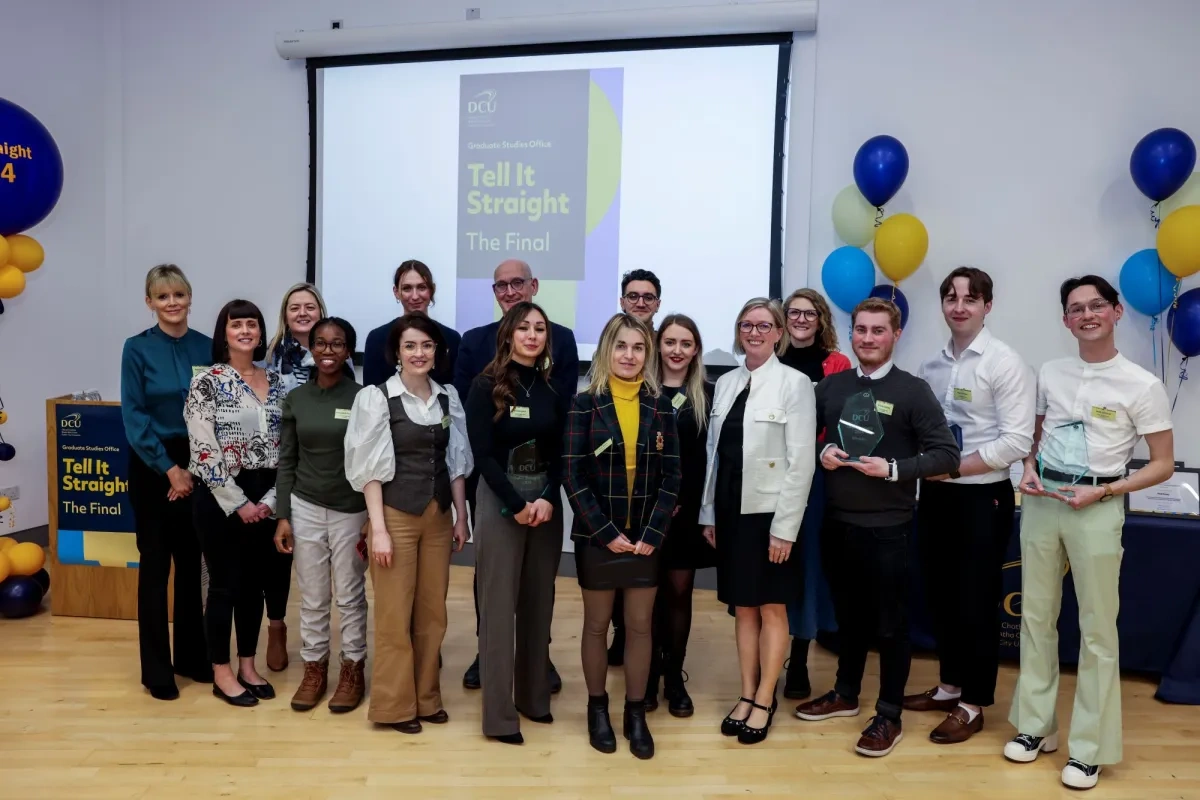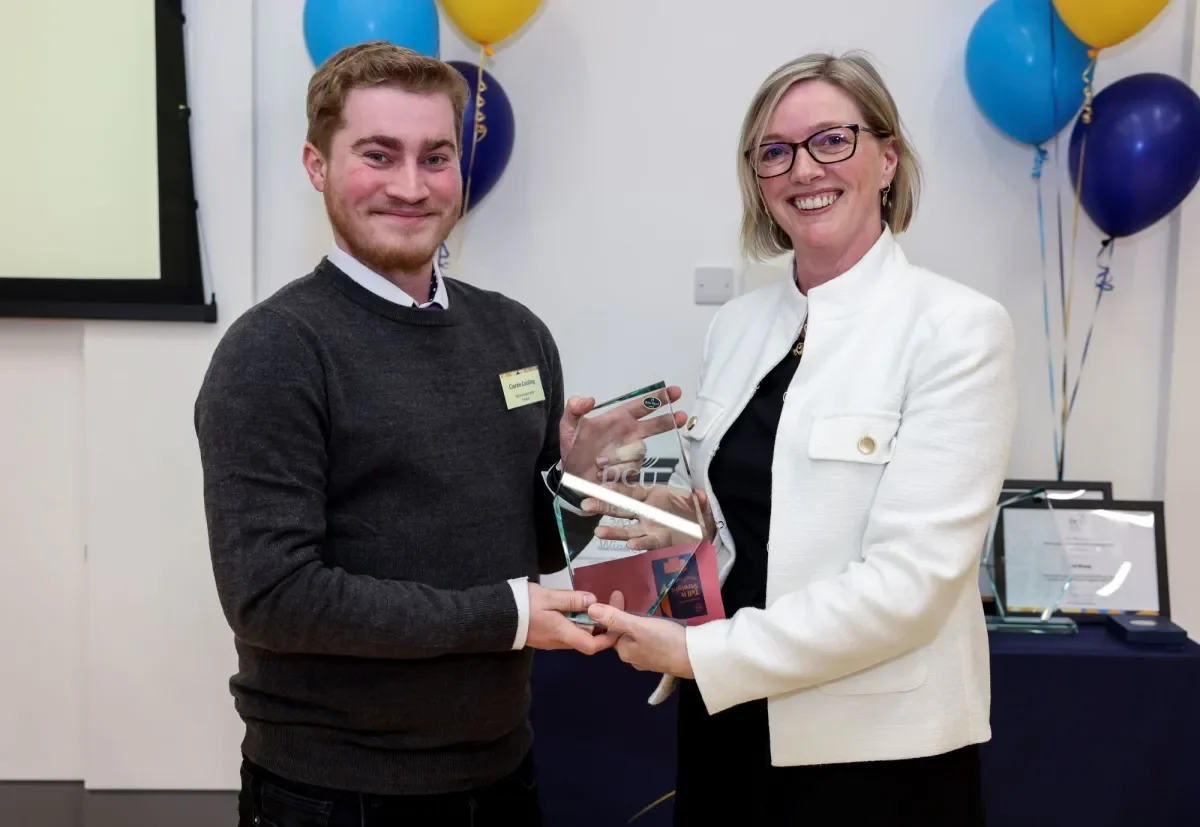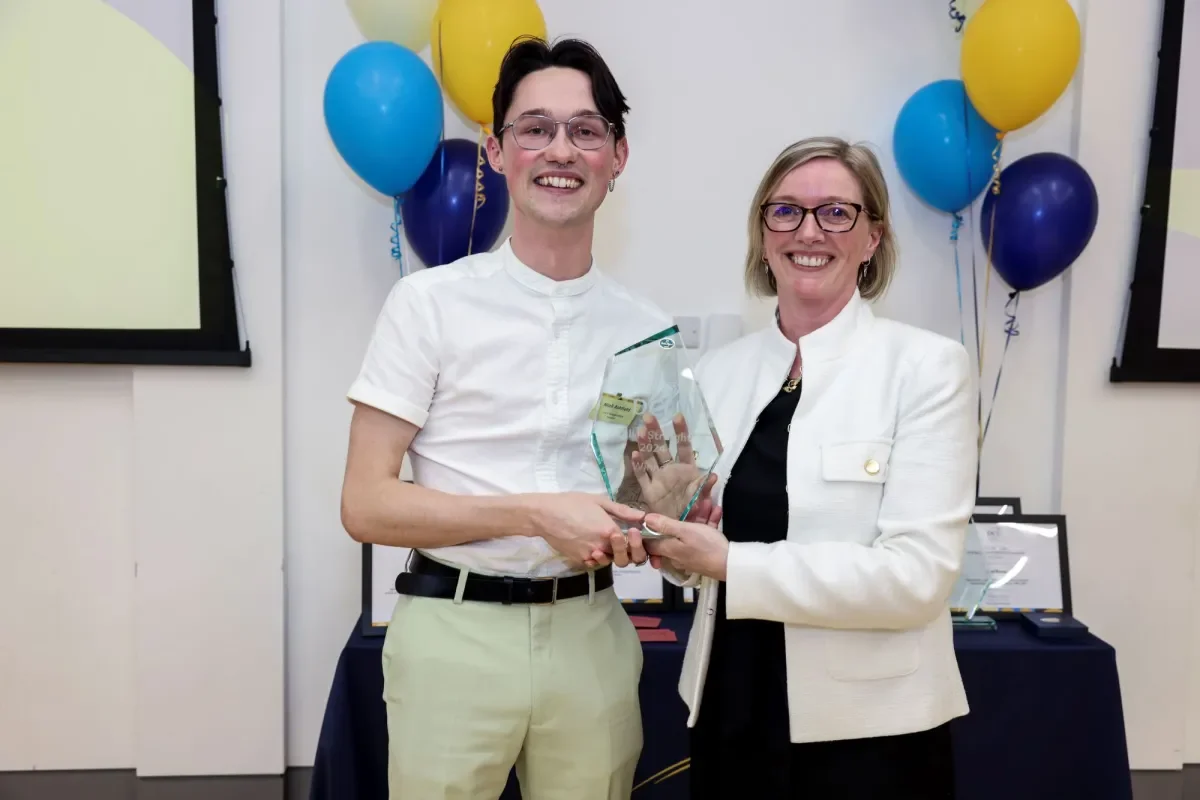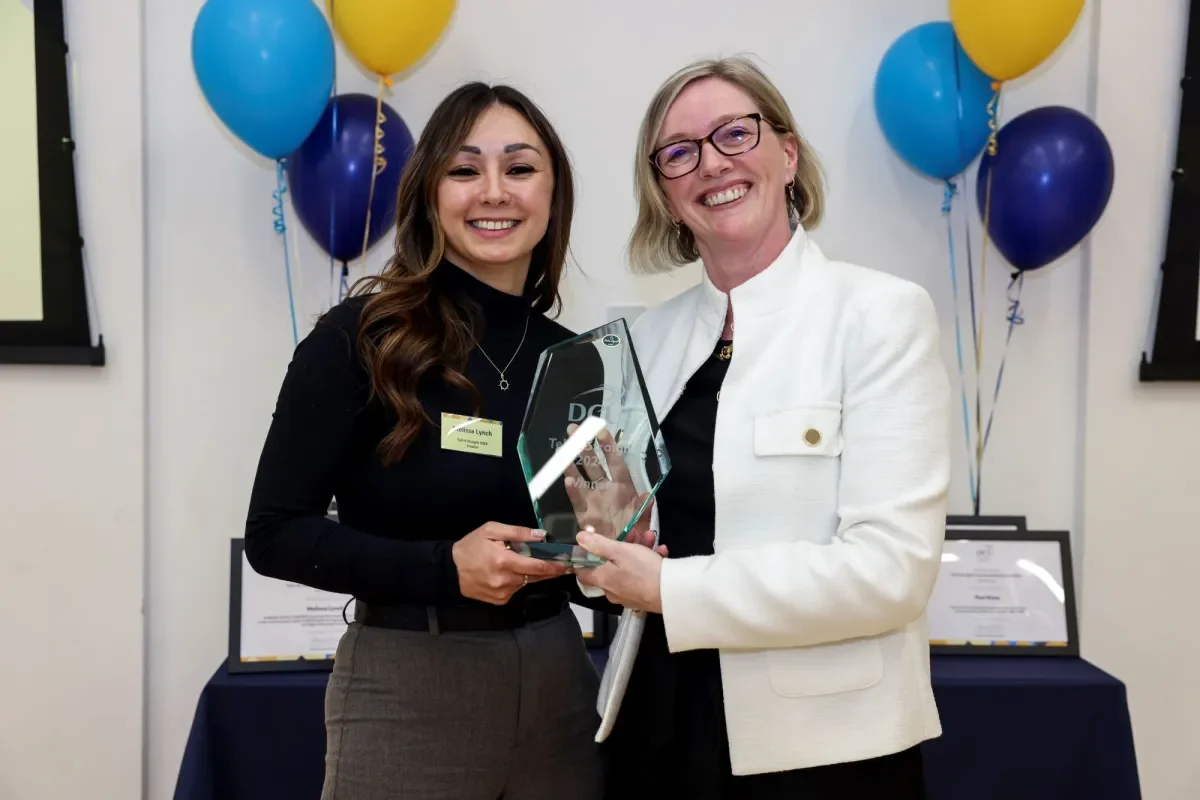

DCU Doctoral Students ‘Tell it Straight’ about their research
The proceedings began with words from DCU President Daire Keogh, who told a packed audience in the Solas room at the U building that, given this was the 11th year of Tell it Straight that it had, almost become a DCU institution.
“Letting people know who you are, and why your research is important is valuable for you in terms of your communication skills,” the President said. “This is a learning opportunity to develop your ability to communicate your work to a non specialist audience.”
The competition, which was organised by the Graduate Studies Office, challenges students to communicate their science to a non specialist audience in a dynamic way, said the Dean of Graduate Studies, Professor Sharon O’Brien, who thanked everyone involved in it.
The judges for this year’s competition were Dr Claire O’Connell, scientist turned science writer and an Adjunct Professor at University College Dublin, Anthony McCauley, the Programme Coordinator for the European Social Fund Plus with Skillnet Ireland and Dr Lisa Keating, the Director of Research and Innovation at the Irish Universities Association.

The category one competition, which was open to first year PhD students was won by Ciaran Cooling, School of Physical Sciences, for his talk entitled ‘Nanolaminated and ultrathin transparent conducting oxides.
Ciaran began by describing the environmental cost of using metals like lithium and indium for our touch screen electronic devices and solar panels.
There is a need for these rare earths to be replaced with other materials, said Ciaran.
“These rare earth metals are critical to our world, but they are also expensive to mine and bad for the environment.”
“We are working on transparent conducting oxides, which can control the flow of electricity in materials made of oxidised metals."
"These materials can replace rare earth metals, and are cheaper and better for the environment. We want to make nano-laminates, using abundant non rare metals to form a material that will have similar properties to the rare earths.”
The runner up in the category one competition was Pepe Sanchez-Molero, from the School of Applied Language and Intercultural Studies, for their talk ‘Chosen families, arrival cities. A comparative study of spaces created by queer migrant communities.’
Pepe began by asking the audience to imagine growing up somewhere where you were not able to express your sexuality or gender.
“This is the case for many queer migrants to cities in Europe. Data shows that violence and discrimination is on the rise in most European metropolises. How do queer people protect themselves?”
The queer migrant hubs of Dublin, Cologne and Barcelona are where Pepe chose to do their research. They plan to engage with people in those cities to understand the needs of queer migrant communities.
“My PhD will also result in an exhibition; in this platform, queer migrants will be able to share their lived experiences: to tell it straight and to tell it queer.”

The winner of the category two competition - open to 2nd year PhD students onwards - was Niall Ashfield from the School of Biotechnology who gave a talk entitled “Investigating the combination of tyrosine kinase inhibitors and antibody-drug conjugates in HER+ cancers.’
Niall began by rhetorically asking, What happens when cancer treatment stops working?
“I’m interested in answering this question at a cellular level,” said Niall. This is first done by growing breast cancer cells in the lab that are transformed into drug resistance cancer cells."
“We want to find out what is different in the resistant cancer cells, compared to before. How exactly did the cells evolve to become resistant, and are the changes targetable to drugs?”
Niall said that, when it comes to cancer, it is vital to ‘know your enemy’.
“We want to know what happens in cancer cells that become resistant, before they become resistant. The ultimate goal is to look at cancer and say - resistance is futile.”
It was difficult to describe this sometimes-complex topic to a non-specialist audience, said Niall speaking after the award ceremony.
“I think it does help that everybody has a connection to cancer whether that’s direct or via a friend or family member. I love talking about my research in any setting to this was just a lot of fun to figure out the best ways of explaining my work to people with no background in the area.”
The runner up in the category two competition was Paul Cannon, School of Physical Sciences for his talk ‘Nanoforest on a chip - oxide nanostructures for DNA analysis’.
Paul talked about point of care tests such as the tests for Covid-19 and compared them to PCR tests, in terms of how sensitive they are to detecting whatever they are looking for. He described machines that use vibrating weighing scales to detect small amounts of DNA, and the work going on using nano materials to even better capture the presence of DNA strands.
“By growing nano materials on the surface of a quartz weighing scale, more DNA is captured, and we believe this is a viable platform for the detection of DNA,” said Paul.

The winner of the category three competition - a video competition open to all PhD students - was Melissa Lynch, from the School of Policy and Practice. for her talk entitled ‘Nobody really knows! Exploring the impact of social and cultural capital on low socioeconomic status students progression from DEIS schools into further and higher education in Ireland.’
Melissa’s video creatively portrayed a story of the challenges students from less advantaged backgrounds face in their lives. In it, she explored the concept of cultural capital and social capital where who a person knows is important to their success. Melissa, from Darndale, said she didn’t know anyone who went to university when she was growing up.
“I came from that background and I want to target inclusion and equity in the education system,” Melissa said.
The runner up in the category three competition was Paul Rowe, School of Policy and Practice for his talk ‘How to start a transformational education movement - the early history of Educate Together 1982 - 1990’
Paul described the origins of Educate Together schools back in the 1980s and how it has grown so that these schools now educate 40,000 pupils across Ireland. He talked about how the schools grew and developed in a system dominated by the religious orders.
“It shows how activists can change the system,” said Paul. “Whether it is in education, the climate crisis, the rise of nationalism or religious conflicts - we all need activists.”
The other participants in Tell It Straight were: Ciara Buckley, School of Psychology; Gaia Bezzi, School of Applied Language and Intercultural Studies; Penelope Coughlan, DCU Business School; Emine Ay, School of Law and Government; Mairéad Jordan, School of English; Paul Cannon, School of Physical Sciences; Trish Carolan, School of Inclusive and Special Education; Daphni Doulaptsi-Teewen, School of Biotechnology; Emma O’Hart, School of Nursing, Psychotherapy and Community Health; Oluwabukola Adegboro, School of Electronic Engineering; and Paul Rowe, School of Policy and Practice.
